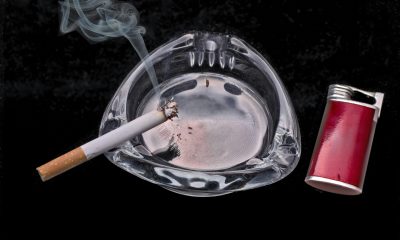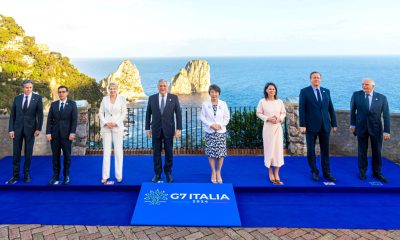EU
#EAPM - Molann HTA éigeantach obair idir lámha, ach DG SANTE sábháilte

 An important EPSCO health ministers meeting took place in Brussels last week. And although it didn’t quite eclipse the Belgian demolition of Tunisia in the World Cup in Russia at the weekend, it covered some vital ground, scríobhann Stiúrthóir Feidhmiúcháin Chomhghuaillíocht na hEorpa um Leigheas Pearsantaithe (EAPM) Denis Horgan.
An important EPSCO health ministers meeting took place in Brussels last week. And although it didn’t quite eclipse the Belgian demolition of Tunisia in the World Cup in Russia at the weekend, it covered some vital ground, scríobhann Stiúrthóir Feidhmiúcháin Chomhghuaillíocht na hEorpa um Leigheas Pearsantaithe (EAPM) Denis Horgan.
Meanwhile, it looks as though the under-threat DG SANTE has come back from its predicted death and will progress going forward, albeit on a lower budget in real terms. (The Commission argues, however, that there will be little difference as the budget will cover 27 member states, not 28, post-Brexit.)
The EU health council meeting on Friday 22 June, under the Bulgarian Presidency, discussed the European Commission’s proposal for joint clinical assessment (JCA) in respect of HTA.
Several member states have complained that the Commission is over-stepping its remit in its bid for a mandatory solution to improve HTA co-ordination, given that health is a member state competence.
The Commission says that the proposal is aimed at improving the functioning of the internal market by harmonizing the member states' rules on carrying out clinical assessments for health technologies at national level.
The proposal, unveiled in late January, has a strong focus on overcoming impeded and distorted market access for patients, with the institutions aiming to reach agreement by December 2018, and the European Parliament scheduled to adopt its position prior to that in October.
Austria is about to take over the EU rotating presidency (1 July) and certainly has a political football to juggle in regard to the proposal.
Germany, France, Denmark, the Czech Republic, Poland, the UK, Italy and Spain have said that a framework for mandatory JCAs needs to be adapted from the existing proposal, although improving cooperation seems to be still on the pitch if it remains voluntary (as it has been for two decades).
Anois, Germany and France are set to draft alternative proposals to the Commission plan, despite eleven mostly smaller member states backing the call for mandatory cooperation, given their generally smaller internal resources.
The idea has essentially been ‘ruled offside’, despite Belgium, Croatia, Cyprus, Estonia, Ireland, Lithuania, Portugal, Romania, Slovakia and Slovenia seeming to back it.
Belgian Health Minister Maggie De Block said that voluntary co-operation has shown good service, but it does have limits.
“We have to take a further step toward co-operation,” she added.
Idir an dá linn, cosúil le Austria, Finland, Hungary, Latvia, Luxembourg, Malta, Sweden and The Netherlands are sitting on the fence.
Germany has said it will produce a working document on HTA co-operation alongside France with all other member states invited to join the process.
A major sticking point in the HTA negotiations was that member states want to keep full control over whether to offer a particular medicine and the reimbursement levels. The Commission said that its plan would not have an impact in this area, but the EU’s heavyweights disagreed.
Ag an gcruinniú, rinne an Commission’s health chief Vytenis Andriukaitis spoke at a press conference and said: “I don’t share the (Bulgarian) presidency’s conclusions made at the end of the debate.
“Everybody can do maths and we saw many member states willing to start real work on the proposal during the Austrian presidency.”
Taifid sláinte leictreonacha
On top of this, the German-France axis has said that it also i gcoinne plans by the EU Executive to promote EU-wide sharing of electronic health records (EHR). They say that this could interfere with their own health systems.
Werner Langhals, of the German Permanent Representation to the EU, said: “An electronic market for patient files is something which requires more clarity before we can support it.”
Idir an dá linn, Fabrice Dubreuil, deputy French ambassador to the EU, said France supported the plan’s objectives, but had reservations about the method that would theoretically achieve it. A voluntary health data-sharing initiative will start later this year between several countries, with more member states expected to join in by 2020.
An Commission wants to focus on EHR in a bid to allow records to ‘travel’ alongside citizens moving around Europe, and it aims to work on a format to achieve this.
However, member states have imní príobháideachta so the Commission has pledged “appropriate data protection safeguards and security of patient health data”.
Currently, the exchange of health data between member states is limited to summaries and e-prescriptions, with individual countries deciding whether to share such information.
DG SANTE set to survive
At the meeting there was overwhelming backing for the EU to continue to have an effect on health issues Europe-wide (it has already been produced legislation on clinical trials, IVDs, cross-border health care and data laws, despite national competence in health care).
There had been talk of the DG being dismantled under the new Commission next year, but countries at the meeting were keen for the EU to promote healthier lifestyles, digital health and European Reference Networks on rare diseases.
The EAPM welcomes this attitude and will be engaging with individual countries, the Commission and MEPs down the line on in these areas.
In fact, EAPM will host a two-hour meeting at the Strasbourg seat of Parliament on 3 July which will involve MEPs and key stakeholders on the subject of co-operation in HTA, and will address the potential impact of the various options emerging from last week’s meeting of health ministers.
Amend, amend, amend…
An Alliance meeting will take place a few days before the Parliament’s ENVI committee, under rapporteur Soledad Cabezón Ruiz, also meets (9-10 July) and EAPM aims to discuss the best possible amendments to the proposed legislation in advance of that gathering.
Parliament is busy examining the options, right now, proposing detailed changes to the Commission proposal. There are already around 200 suggested amendments and that number is likely to grow.
Some amendments are looking at giving the Commission a purely administrative role in any increased HTA cooperation (there needs to be a framework, obviously, not least to check legality).
Amháin leasú also looks at an appeal process on HTA decisions for pharmaceutical companies, which is not included in the Commission proposal.
Idir an dá linn, Cabezón Ruiz has previously called for medical devices to be included in any new legislation, while industry has strongly said that it wants them left out.
Mar a luadh, most member states do agree that there is room for common ground, at least on a up-scaled voluntary level, but the details need to be thrashed out for the benefit of the EU’s patients. Therefore stakeholders such as EAPM’s members are emphasising that there is no time to waste.
The game is afoot, with arguably much more at stake than a FIFA football trophy.
Comhroinn an t-alt seo:
-

 TobacLá ó shin 5
TobacLá ó shin 5Cén fáth nach bhfuil beartas an AE maidir le rialú tobac ag obair
-

 An tSín-AELá ó shin 5
An tSín-AELá ó shin 5Bígí le Lámha chun Pobal Todhchaí Comhroinnte a Thógáil agus Todhchaí Níos Gile a Chruthú don Chomhpháirtíocht Uile-Bhabhta idir an tSín agus an Bheilg um Chomhoibriú Cairdiúil le Chéile
-

 An Coimisiún EorpachLá ó shin 5
An Coimisiún EorpachLá ó shin 5Ní thairgtear saorghluaiseacht iomlán don RA do mhic léinn agus d’oibrithe óga
-

 An Mean OirthearLá ó shin 5
An Mean OirthearLá ó shin 5Tagann freagairt an AE ar stailc diúracán Iosrael ar an Iaráin le rabhadh ar Gaza

























